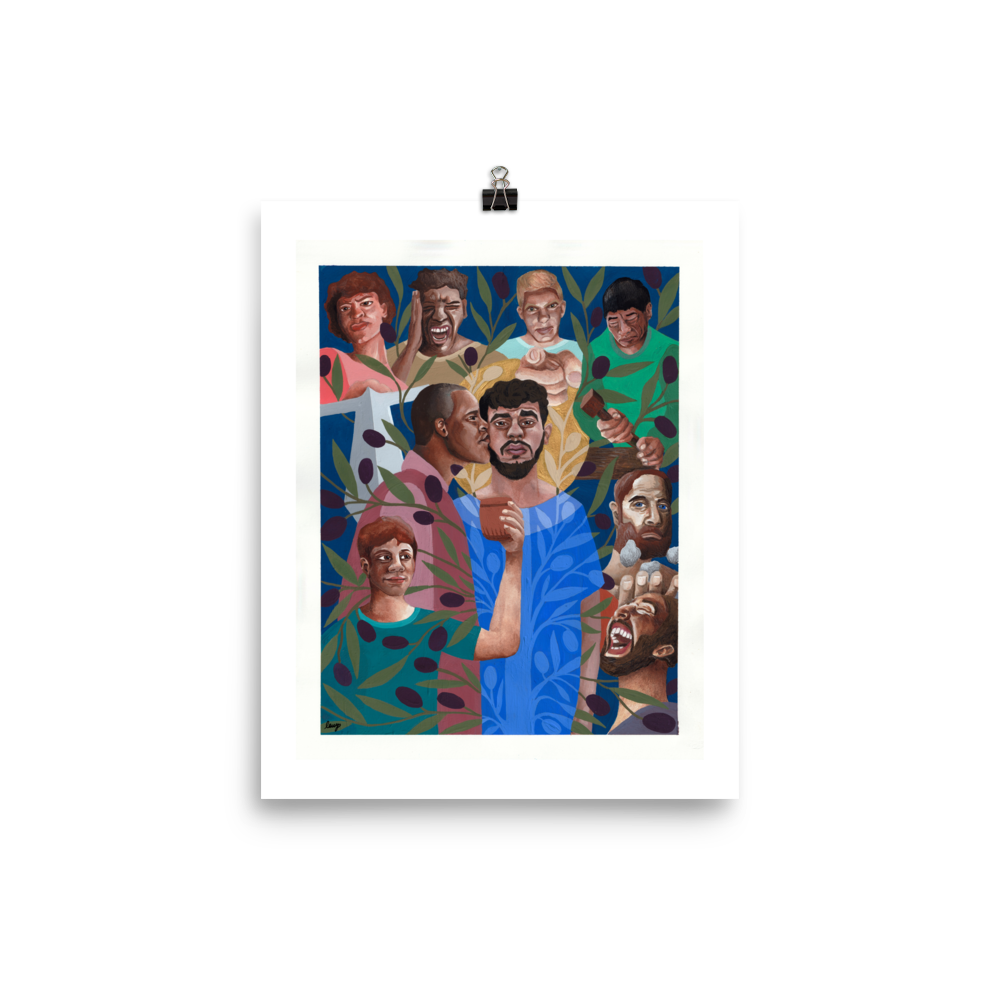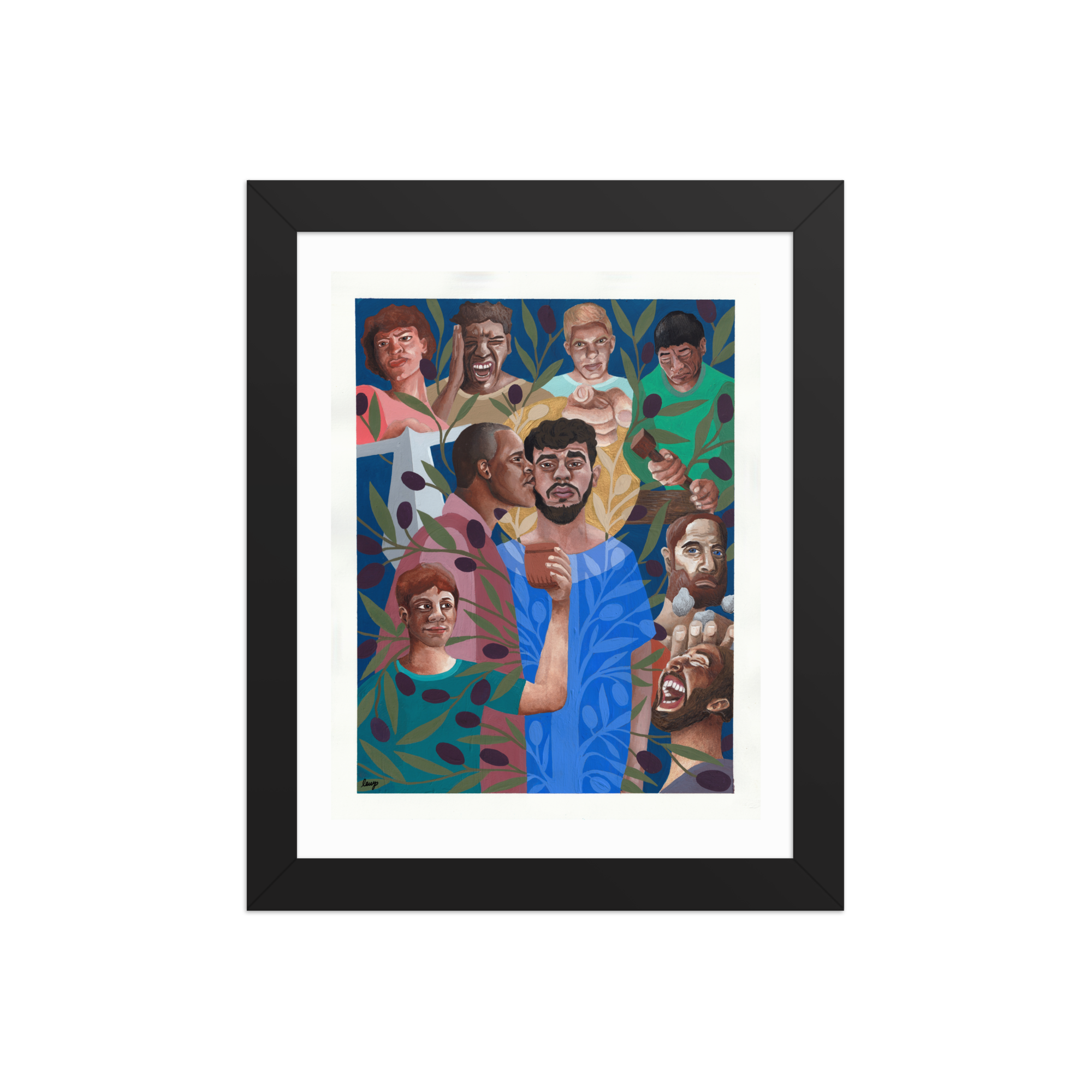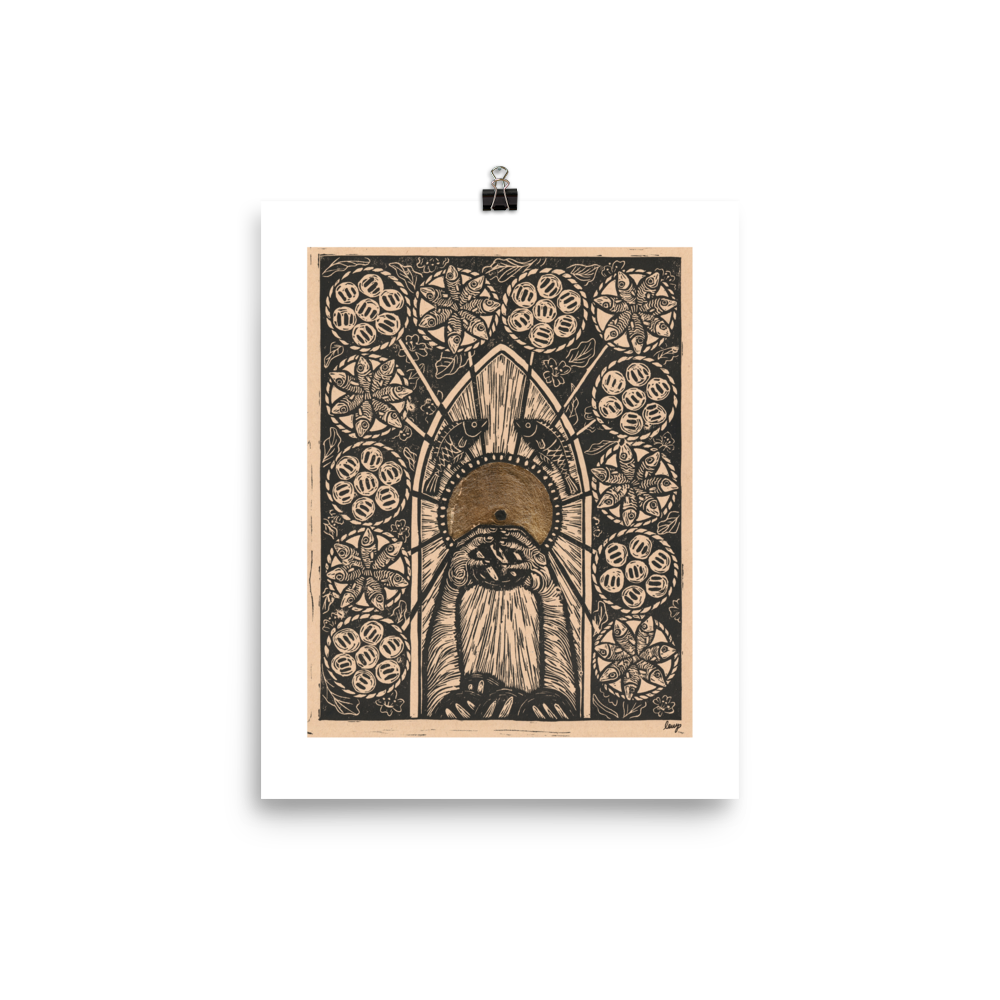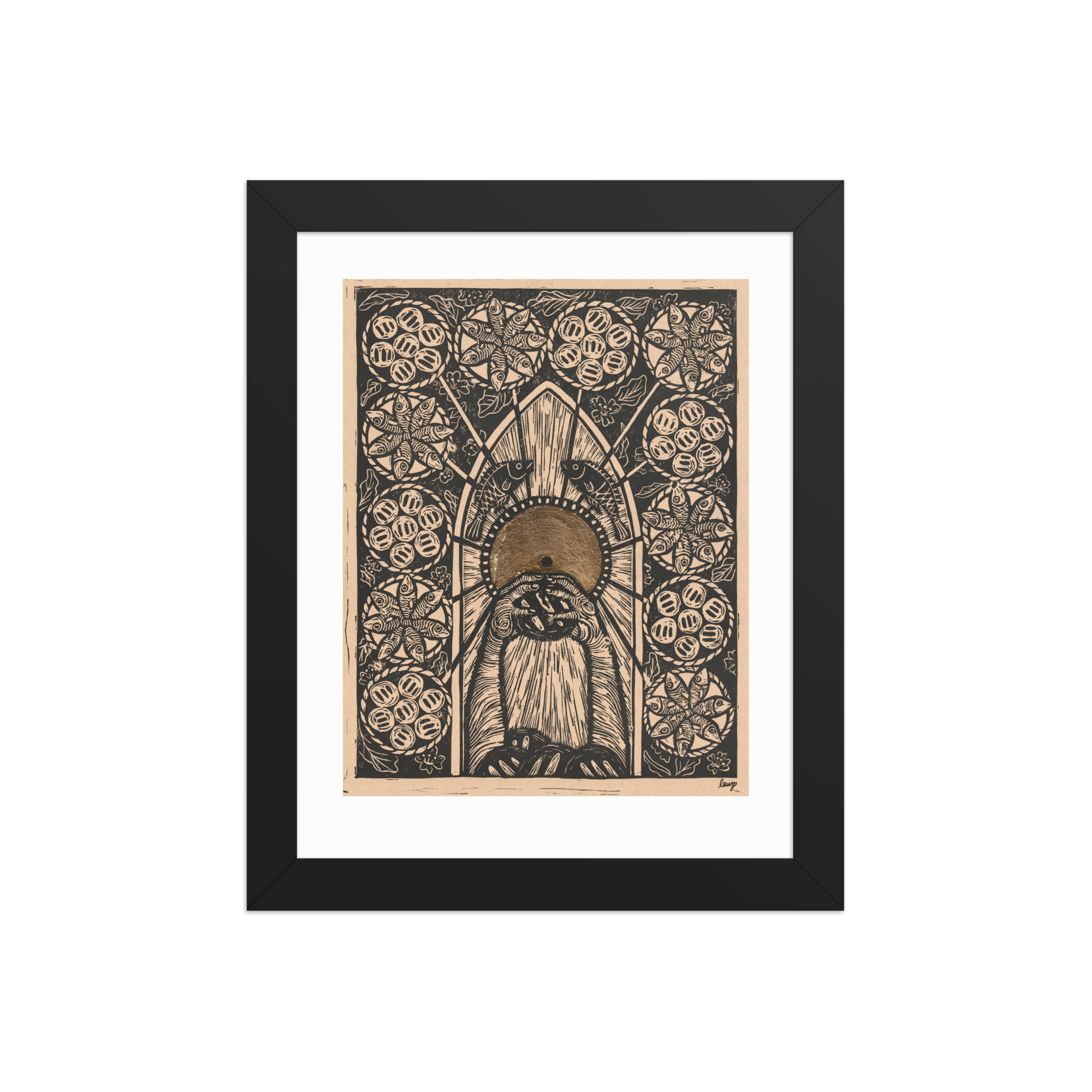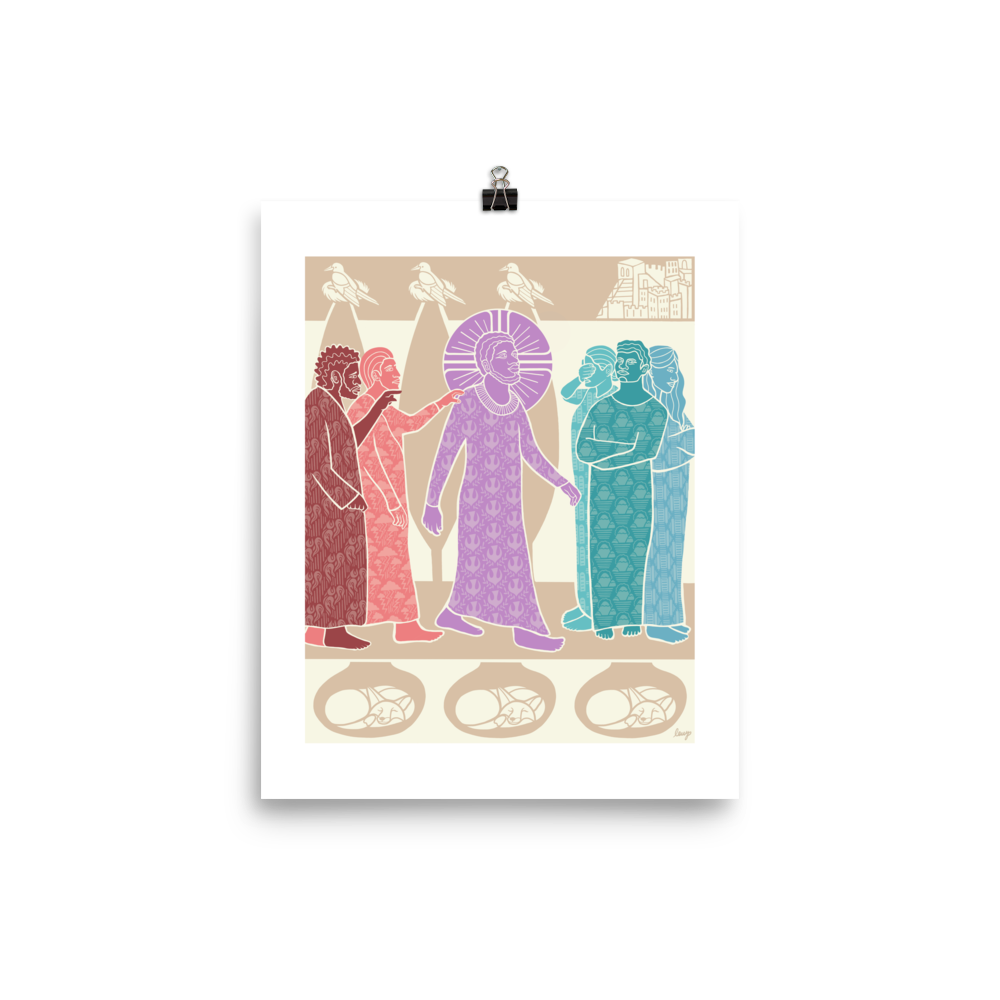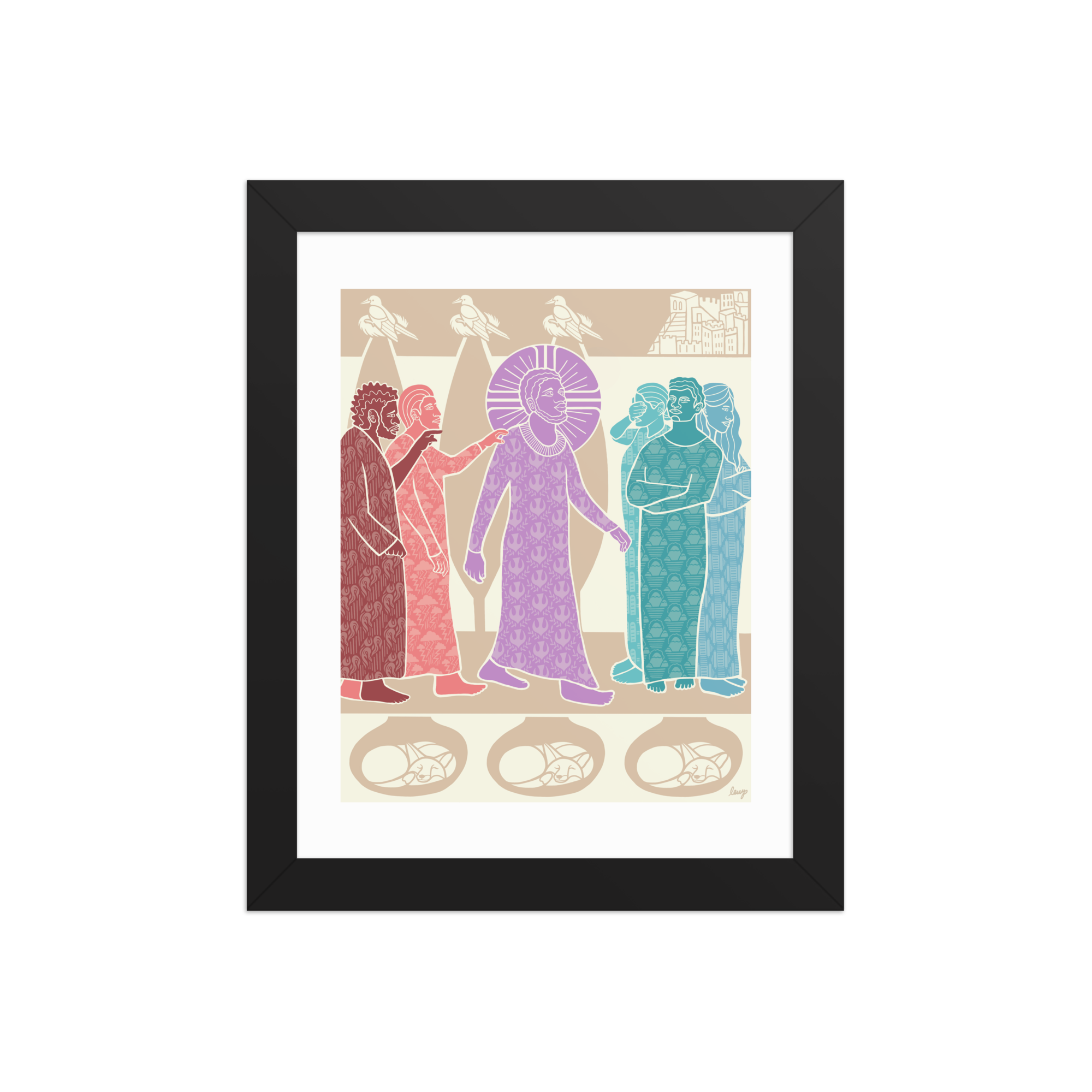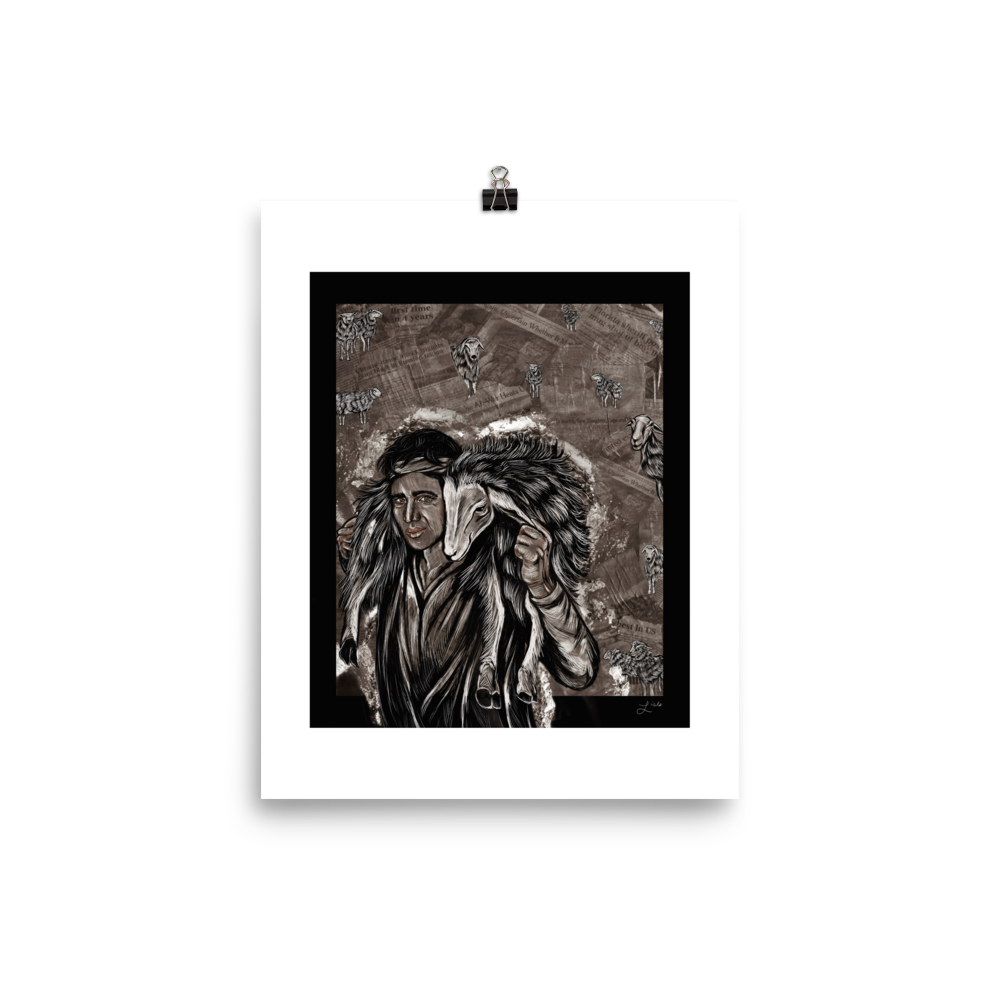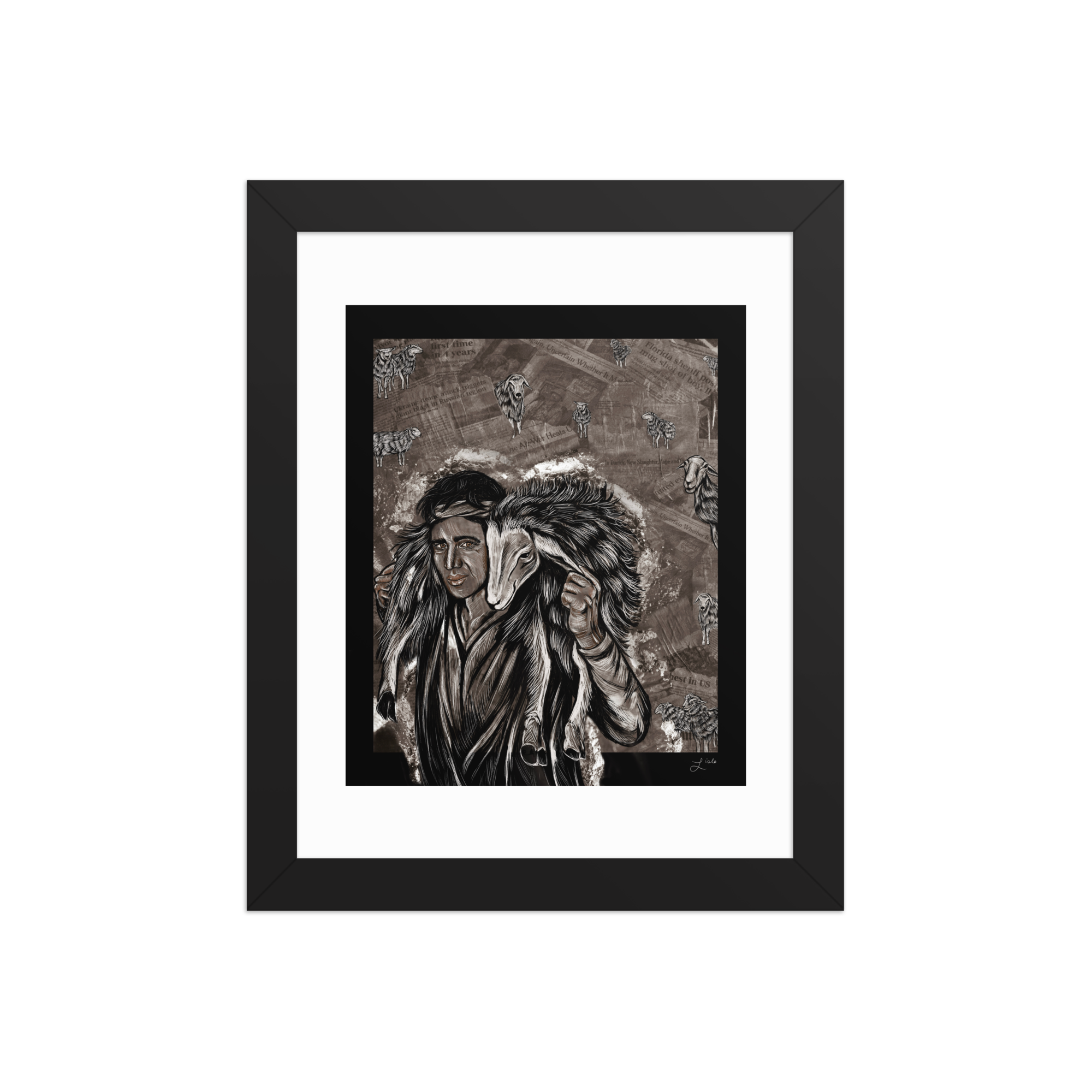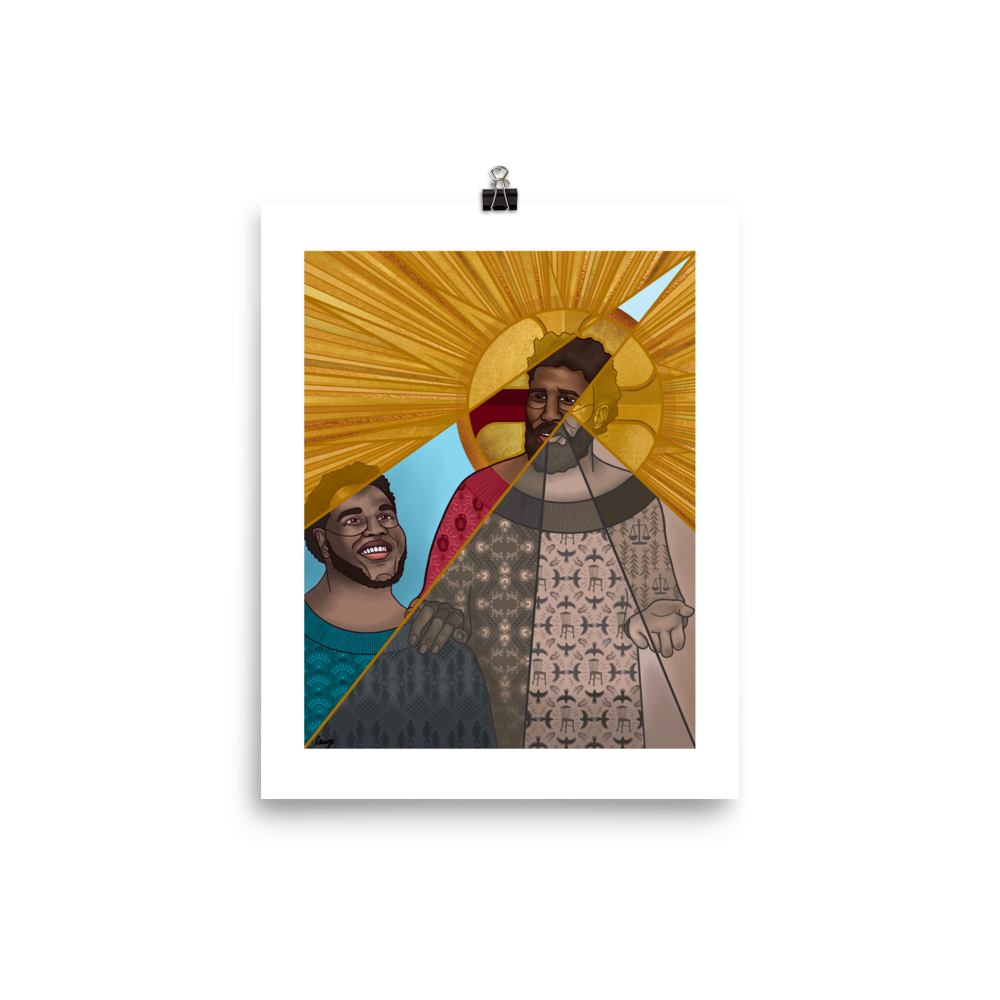Brazen Beauty Print (Mary Anointing Jesus' Feet) by Lisle Gwynn Garrity
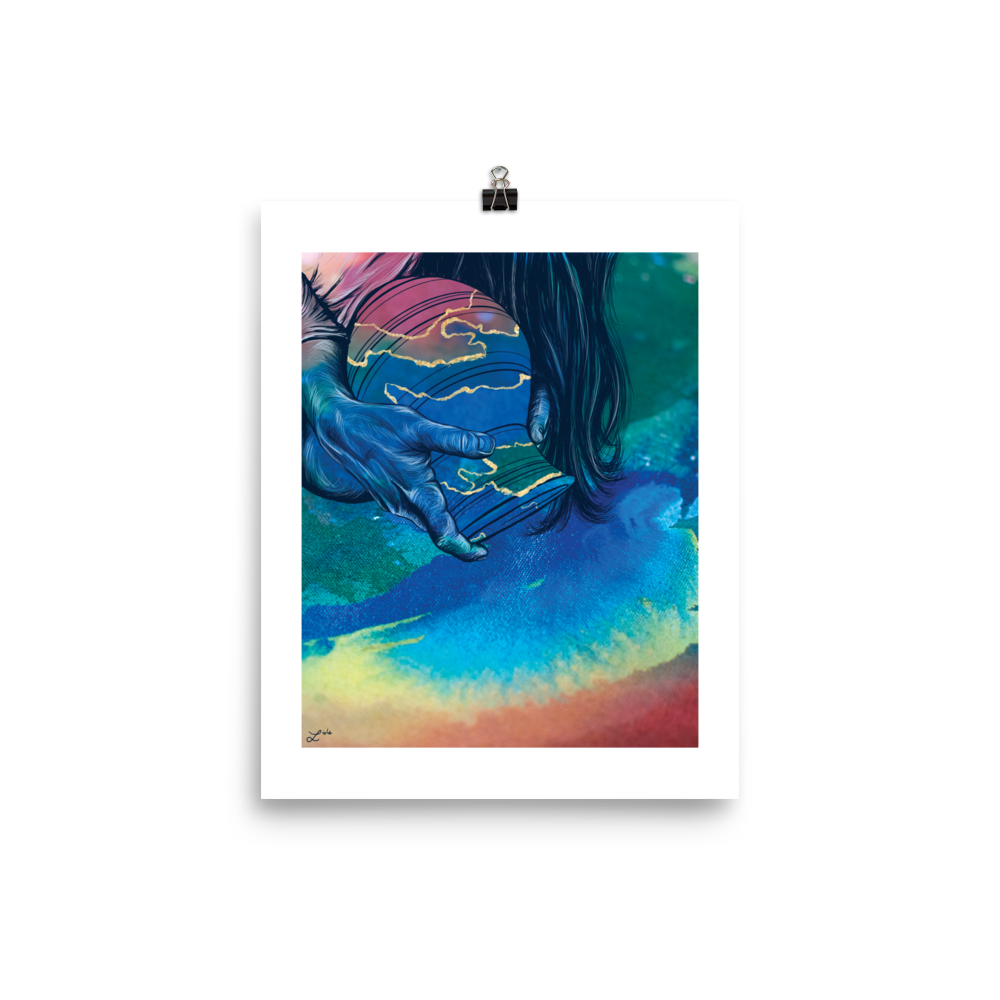





Brazen Beauty Print (Mary Anointing Jesus' Feet) by Lisle Gwynn Garrity
Brazen Beauty
Acrylic on raw canvas with digital drawing
By Lisle Gwynn Garrity
Inspired by John 12:1-8
Museum-quality poster made on thick, durable, matte paper. Unframed artwork will arrive rolled up in a protective tube.
Framing option available.
Print Details:
Museum-quality posters made on thick, durable, matte paper.
Paper is archival and acid-free.
Unframed prints arrive rolled up in a protective tube.
Frame Details:
Alder, Semi-hardwood frame
Black in color
.75” thick
Acrylite front protector
Lightweight
Hanging hardware included
Made in the USA
From the Artist:
In the chapter just before this, Lazarus dies and Jesus weeps. But after being laid in the tomb, Lazarus is raised and made well. This act solidifies for the chief priests and Pharisees that Jesus is a dangerous threat. In response, they order for his arrest and plot how they will kill him. Jesus retreats from public ministry, hiding out in the wilderness in Ephraim. As the passover nears, people begin to wonder: “Will Jesus be here?”
Despite the threats mounting, Jesus does return. On his way to Jerusalem, he stops in Bethany, seeking refuge and comfort in the home of his friends. Martha cooks a feast, and Lazarus—healthy and alive—joins him at the table. In resistance to death, as an act of extravagant love, Mary anoints Jesus with a fragrance that fills the whole room. Her actions could appear impulsive, but if you were saying your last goodbye to someone you loved, how would you act?
This image began as a painting on raw canvas. With fluid strokes of paint, I allowed the colors to run and bleed into each other. As I drew Mary kneeling, I omitted the other details in the scene, removing Jesus’ feet, the other guests, the table full of food. I wanted to focus on Mary’s brazen act of pouring out the expensive perfume, a commodity valued at a year’s worth of wages. The luxurious liquid is expansive, flowing out toward us as the viewer. It bleeds into the red, foreshadowing the blood Jesus will soon shed. The vessel she holds is lined with gold, a reference to the ancient Japanese practice of Kintsugi, of repairing broken pottery with gold lacquer. The art of Kintsugi embellishes the cracks and transforms a shattered vessel into a new object of beauty. In this embodied act of worship, Mary is practicing Kintsugi—boldly celebrating the beauty of life even as death approaches.
—Rev. Lisle Gwynn Garrity

